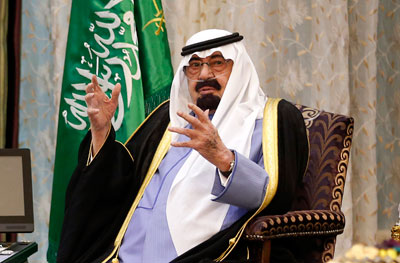
Saudi censorship blurs lines between journalism, activism
Since the surprise Arab uprisings of 2011, the Saudi government has worked assiduously to ensure it has all the tools of censorship it needs to control dissent. These tools–a combination of special courts, laws, and regulatory authorities–are starting to fire on all cylinders. The result has been a string of arrests and prosecutions in recent…

Most censored nations each distort the Net in own way
One big reason for the Internet’s success is its role as a universal standard, interoperable across the world. The data packets that leave your computer in Botswana are the same as those which arrive in Barbados. The same is increasingly true of modern mobile networks. Standards are converging: You can use your phone, access an…
Internet Blotter
Egyptian blogger Karim Amer is finally free after four years in prison. Iran launches yet another police force to deal with the Internet, headquartered with the Revolutionary Guard. Its commander says the state plans to quadruple its Internet control budget. Google lobbies U.S. policymakers to consider online censorship a free trade issue. Is breaking into…
Use your Blackberry to map global surveillance
The University of Toronto’s Citizen Lab has announced a research project to analyze the global infrastructure of Research In Motion, maker of the BlackBerry. It’s looking for BlackBerry users from any country to take part–especially those in the United Arab Emirates, Saudi Arabia, India, Indonesia, Russia and China. All of these countries have at some point…

What should journalists know about BlackBerry fights?
The discussions between Research In Motion, maker of the BlackBerry, and governments such as the United Arab Emirates, Saudi Arabia, and India continue to hit the headlines. In each case, disagreements center on providing customer communications to security and law enforcement services. The rumblings from these nations over monitoring powers aren’t just limited to RIM:…

U.S. Senate passes ‘libel tourism’ bill
This week, the U.S. Senate unanimously passed a bill shielding journalists and publishers from “libel tourism.” The vote on Monday slipped past the Washington press corps largely unnoticed. Maybe it was the title that strove chunkily for a memorable acronym: the Securing the Protection of our Enduring and Established Constitutional Heritage (SPEECH) Act. Journalists and…
Free Speech Protection Act could slow ‘libel tourism’
Free press advocates in Britain are looking to a bill stuck in the U.S. Congress for moral support in the fight to reform England’s draconian defamation laws. The U.S. bill, the Free Speech Protection Act 2009, is itself the product of those laws, which have made London the capital of “libel tourism.”
Saudi prince threatens sports commentators
Saudi Prince Sultan bin Fahd bin Abdulaziz made an unexpected phone call last week to a live talk show on a Saudi sports channel. The prince made the angry call to Al-Riyadiyya from Mascat, Oman, on January 17 after he’d watched Oman’s national soccer team defeat Saudi Arabia in the Gulf Cup. He picked up the phone…